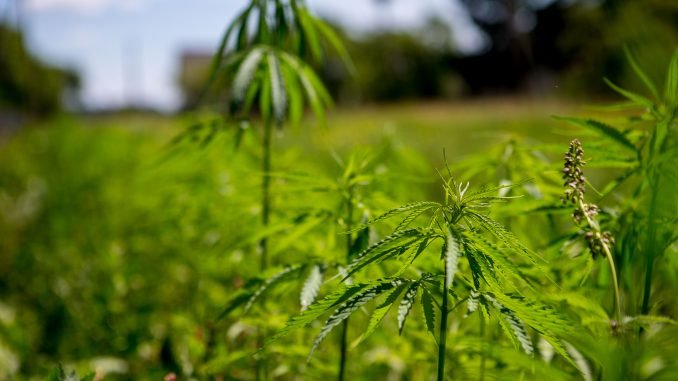
According to the LŪS data, full processing of industrial hemp, including all parts of a plant, would benefit Lithuanian economy with around 100 million euros. This amount is expected to climb over 300 million euros in a period of two years. This would bring additional profit to farmers, create new employment opportunities and increase government revenues, press release issued by the LUS states.
At the moment, it is legal in Lithuania to cultivate hemp for fiber and seeds. If full processing of industrial hemp would be legalized, it would give an opportunity to use all parts of a plant and extract valuable components that can be used for various purposes – in human and animal food, medicine, cosmetics, as fiber and more. In addition, there is a possibility to extract hemp protein and flour from a plant.
Supplying raw materials – creating value for others
LŪS representatives state that hemp industry is speedily expanding around the world, while Lithuanian businesses are losing a race due to restrictions in country’s legal system. Currently Lithuania is exporting raw hemp material to Poland, Germany, Switzerland and the Netherlands, where it is being processed in order to produce high quality products that sell in markets at a high price.
„Due to strict legal regulation, our businesses have limited opportunities to create additional value in Lithuania. While demand for hemp products, especially for hemp extract and cannabidiol (CBD), is growing around the world, Lithuania remains a supplier of raw materials and generates additional value for businesses in other countries. LFU believes that Lithuania shouldn’t be just an exporter of a cheap biomass, but should rather focus on processing industrial hemp and creating products with a higher additional value”, – says the head of LŪS Jonas Talmantas.
Unlimited opportunities
For example, 1 hectare of grains generates 300 euros of profit, while the same amount of land planted with hemp would generate around 1500 euros of profit.
Legalizing full processing of the industrial hemp would encourage Lithuanian farmers to expand the cultivation of this crop. In addition, farmers would be motivated by its stable prices in the market, which do not variate as much as prices of grains. A cultivation of the industrial hemp does not require huge investments – this plant is resistant to diseases and, thus, does not need to be sprayed with herbicides or pesticides.
LŪS wants to bring to public attention that more and more countries in the European Union (EU) are decriminalizing and legalizing hemp products. This is mostly due to the fact that criminalization of hemp leads to significant damage and stagnation of a biotechnology sector – scientists have limited opportunities to do research projects involving hemp that contains cannabinoids. LŪS wants to emphasize that due to the legal restrictions, Lithuanian businesses cannot invest into promising fields, such as seedling and selection of species.

Be the first to comment